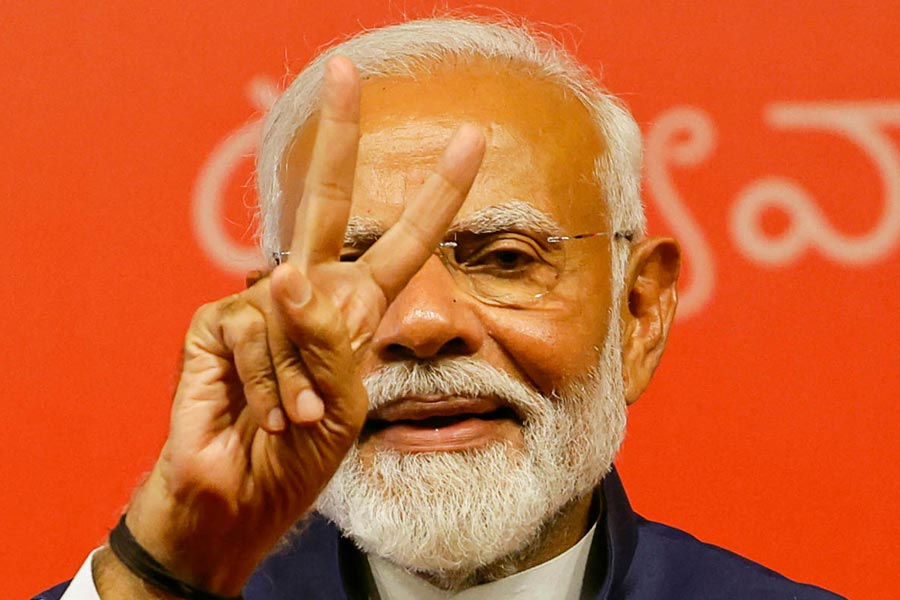The International Monetary Fund has dubbed 2024 as the Great Election Year during which people residing in 88 economic jurisdictions, representing more than half of the world’s population, will pick new leaders who will shape their destinies. India has just emerged from the heat and dust of a fraught democratic process — punctuated as much by theatrical bluster as comical burlesque — with a shock verdict. The Bharatiya Janata Party managed to scrape through to win a historic third term with the help of wily allies who could tie Narendra Modi in knots as he grapples with the compulsions of coalition politics for the first time.
Mr Modi, who has never brooked opposition to his penchant for capricious policymaking, will now find it hard to push the more imprudent elements of Viksit Bharat, his many-splendoured vision of an autarchy. Keen India watchers have been fretting over the fate of the nation’s long-imagined reforms. They despair that the country will sacrifice fiscal austerity at the altar of unbridled welfarism. A lot will depend on the lexical context of reforms itself: what will the rag-bag contain? The elements of the old screed on reforms are well known: fiscal prudence, improved public finance, big capital spending by both government and private sector, large resource allocations to education and healthcare sectors, better-directed subsidies, lower personal taxes with a broadened base, incentives to ignite investments, lowering of barriers to trade and foreign fund flows, and the ability to create a climate that
fosters big and small businesses.
It is obvious that the big-ticket reforms in areas like land, labour and agriculture will not get off the ground anytime soon. But the new government will have to craft a strategy to provide impetus to an economy that grew by a surprisingly strong 8.2% in 2023-24 even as inflation started to cool. The regime will need to rebuild credibility around its data sets. The base year for national statistics — 2011-12 — has not been changed since January 2015 even though the National Statistical Commission had recommended that all economic indices should be rebased once every five years. The upcoming budget will reveal whether Mr Modi’s coalition government will be able to cap fiscal deficit at just over 5% of GDP and trim the combined debt of the Centre and the states to a more manageable 60% from current levels of over 85%.
The old regime tried to bluff its way through the more distressing aspects of the economy. The promise of 20 million jobs was never realised. Mr Modi is likely to push ahead with his Make in India programme whose success depends critically on the production-linked incentives doled out to 14 specific sectors. The anger over the Agnipath scheme for the armed forces boiled over in the north, hurting the BJP’s electoral prospects. The incoming government will imperil its future if it ignores the groundswell of resentment. But more than anything else, young voters want to hear less spiritual babble and more business-speak. The arcane mantras and shibboleths need to be discarded.











